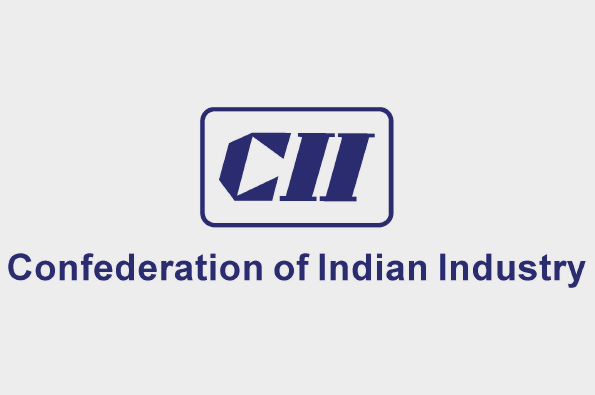CII cautions against increasing fiscal deficit to spur the coronavirus-hit economy
Amid the call for higher public spending to spur growth, the CII sounded a note of caution saying that the government should guard against increasing fiscal deficit that may prompt rating downgrade resulting in other consequences for the economy.
Earlier this week, Moody’s Investors Service downgraded India’s sovereign rating to ‘Baa3’ from ‘Baa2’, saying there will be challenges in implementation of policies to mitigate risks of a sustained period of low growth and deteriorating fiscal position.
In its agenda document 2020-21, the CII also refrained from making an estimate on economic growth this fiscal year given the uncertainty of the situation against the backdrop of COVID-19 pandemic. There is currently a consensus amongst economists that the Indian economy will witness a contraction in 2020-21, the question is how deeply negative the growth is likely to be, the chamber said.
The Reserve Bank of India also expects GDP growth to remain negative in the current financial year. Amid projections of a sharp contraction in the global economy, many agencies have downgraded India’s growth forecast for the fiscal, indicating a steady moderation in their growth expectation culminating in widespread expectation of deep contraction.
Observing that government spending has been supporting the economy over the last few years, the CII said for substantive economic recovery to kick in, government spending would be crucial.
“However, with an increasing fiscal deficit and mounting government debt, the economy runs the risk of rating downgrades which has consequences. Moody’s has recently downgraded India’s rating from Baa2 to Baa3, the lowest in investment grade, with a negative outlook on worries over growth and fiscal risks.
“Any further downgrades will make India susceptible to flight of capital and leave its currency vulnerable,” the industry body said in the agenda document.
It said the coronavirus-induced lockdowns, wherein economic activity came to a virtual standstill, will deepen the slowdown sharply.
“The Indian economy is expected to contract this year, an outcome that we have experienced only five times in the last 70 years,” the Confederation of Indian Industry said.
With the Indian economy entering the Unlock Phase 1.0, economic activity is expected to pick up. However, it is difficult to say what will be the shape of the recovery, the chamber said while highlighting that the need of the hour is for government and industry to work together to return to a sustainable growth path.
“It is fair to assume that in the current year, considering that we have had long lockdowns in April and May which is a disproportionate shock coming out of COVID, that for the current year, the estimates on the negative side may have veracity,” said new CII President Uday Kotak, a veteran banker.
The chamber further said the country is witnessing reverse migration with migrant workers going back to their hometowns. “…we should take this as an opportunity to create a more geographically distributed model of development and programmes like the Backward District Development Programme need to be expanded,” it said.
Getting growth back is essential to protect and generate jobs and livelihoods, it added. Lakhs of migrant workers moved back to their home states, mainly Uttar Pradesh, Bihar and Jharkhand, as the lockdown which started on March 25 halted economic activities in the country.
The CII has outlined a 10 Point Roadmap to revive growth and navigate the challenges of loss of lives and livelihoods posed by the global pandemic COVID-19 that has forced countries across the world to reset their growth paths.
Addressing his first conference as CII president, Kotak said the reform process which Prime Minister Narendra Modi has put in place will unleash growth opportunities.
According to him, India’s current account deficit for 2020-21 is likely to be zero. He further said the country is in a good macroeconomic situation but will run a higher fiscal deficit due to government spending. However, he observed that the government needs to spend more, while also exhorting the industry to boost private investments and get its “animal spirits” back.
Kotak said most economists are estimating that the combined fiscal deficit is probably already around 11.5 percent of the GDP. Therefore, compared to the original budget estimates, whether it is in terms of lower revenues, or whether it is fiscal stimulus, the government has already spent Rs 10 lakh crore more at 5 percent of GDP.
From here, it has to figure out what are the priorities, where it wants to spend and have a rifle approach to getting it right, he said. On a question related to the current global context in respect of China, Kotak said there are two elephants fighting, in an apparent reference to the present relations between the US and China.
“We have got to do what is right for our country and our people and based on the economics of where we stand. Therefore, if there is unfair dumping based on non-transparent pricing, I think India will have to respond. But otherwise, we should be open to engaging with China which is a solid global power today and we must leverage that opportunity for trade,” he said.
For more information contact us on
